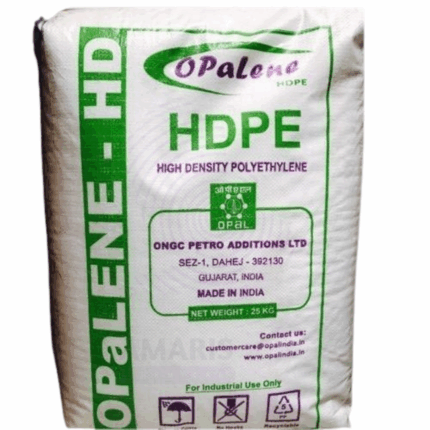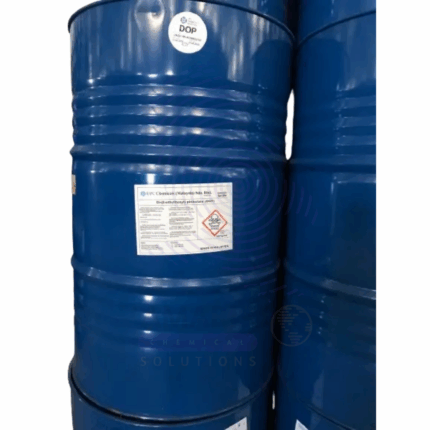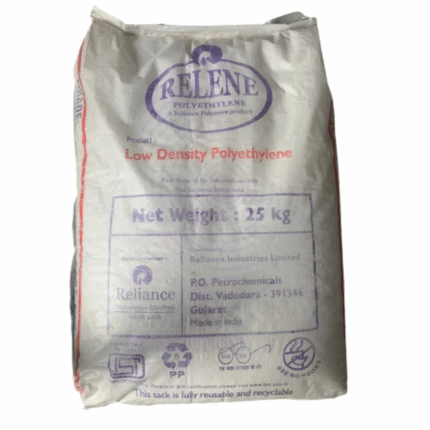HDPE Injection
Whatsapp Order
HDPE Injection is a high-density polyethylene resin specially formulated for injection molding processes. This grade exhibits excellent flow characteristics with moderate melt flow index optimized for producing precise, high-strength molded parts with superior surface finish. It combines good impact resistance, stiffness, and chemical resistance with excellent dimensional stability. The resin ensures reliable processing performance across a broad temperature range and is suitable for complex, detailed, or large injection-molded components. It is supplied as uniform granules designed for smooth melting and consistent molding cycles.
Description
Table of Contents
Toggle
HDPE Injection
Primary Uses
- Injection Molding Applications
- Production of automotive components such as interior panels, caps, covers, and fuel system parts requiring chemical resistance and toughness.
- Manufacturing consumer goods including household containers, lids, toys, and durable plastic parts with high mechanical strength.
- Used extensively for industrial parts like gears, housings, electrical enclosures, and machine components demanding dimensional precision and durability.
- Fabrication of medical device components where chemical inertness and cleanliness are necessary (subject to certification).
- Production of packaging closures and caps with excellent sealing properties and toughness.
- Electrical & Electronics Industry
- Used for electrical connectors, insulators, and housings that require dielectric properties and impact resistance.
- Components for cable conduits and protective covers.
- Construction & Infrastructure
- Fabrication of plumbing fittings, valve bodies, and pipe components resistant to corrosion and environmental stress.
- Production of fixtures and fasteners requiring high mechanical strength and environmental resistance.
Secondary Uses
- Household & Office Products
- Items like storage bins, drawer components, and office equipment parts.
- Fabrication of toys and recreational equipment requiring safety and durability.
- Packaging Industry
- Manufacturing of heavy-duty containers and crates with impact resistance and chemical durability.
- Agricultural Applications
- Components for irrigation systems, plant pots, and equipment parts requiring UV resistance and toughness.
- Recycling and Sustainability
- This resin grade is recyclable and can be repurposed into injection molded products of similar or lower specifications, supporting circular economy initiatives.
KEY ATTRIBUTES
- Basic Identification Attributes
- Chemical Name (IUPAC): Polyethylene, high-density (HDPE)
- Common/Trade Name: HDPE Injection HMA035/3255
- CAS Number: 9002-88-4
- HS Code: 3901.20.00
- Polymer Type: High-density polyethylene (HDPE) injection molding grade
- Synonyms: HDPE Injection Grade; HDPE molding resin
- Physical & Chemical Properties
- Physical State: Pellet resin
- Color & Odor: Natural/translucent; odorless
- Density: ~0.945 g/cm³
- Melt Flow Index (MFI): Approx. 3.5 g/10 min (typical for HMA035 grade)
- Melting Point: Approx. 130°C
- Tensile Strength: High, generally 20–30 MPa
- Impact Strength: Excellent impact resistance at room temperature
- Environmental Stress Crack Resistance: Good
- Chemical Resistance: Resistant to acids, bases, alcohols, and hydrocarbons
- Thermal Stability: Suitable for molding temperatures between 190–260°C
- Safety & Hazard Attributes
- GHS Classification: Not classified as hazardous
- Toxicity: Non-toxic, suitable for food contact (batch certification required)
- Handling: Non-irritant under normal handling conditions
- Storage & Handling Attributes
- Container Type: Supplied in moisture-proof bags or bulk containers
- Storage Conditions: Store in dry, cool places away from direct sunlight
- Shelf Life: Up to 2 years if stored properly
- Handling Notes: Minimize dust generation; use PPE when handling bulk
- Regulatory & Compliance Attributes
- Compliant with FDA and EFSA regulations for food contact use (subject to certification)
- REACH and RoHS compliant
- Meets ASTM and ISO standards for injection molding resins
- Environmental & Health Impact
- Biodegradability: Non-biodegradable but recyclable
- Recycling: Accepted in plastic recycling streams; can be reprocessed for injection molding or other polymer uses
- Ecotoxicity: Low, inert polymer
- Carcinogenicity/Mutagenicity: Not classified
SAFETY HANDLING PRECAUTIONS
- Safety Handling Precautions
- PPE Required: Protective gloves, goggles, dust masks when handling dry pellets
- Handling Guidelines: Use in well-ventilated areas; avoid dust inhalation
- Hygiene Practices: Wash hands after handling; avoid ingestion and eye contact
- First Aid Measures
- Inhalation: Move to fresh air if irritation develops
- Skin Contact: Wash with soap and water
- Eye Contact: Rinse thoroughly with water for 15 minutes; seek medical attention if irritation persists
- Ingestion: Not harmful in small amounts; seek medical advice if large quantities ingested
- Firefighting Measures
- Fire Hazards: Combustible solid; emits dense smoke and toxic gases such as carbon monoxide and carbon dioxide when burned
- Extinguishing Media: Water spray, foam, dry chemical, CO₂
- Combustion Products: Carbon oxides and hydrocarbons
- Firefighter PPE: Use self-contained breathing apparatus and full protective gear
Related products
Diethyl Phthalate
Diethyl Phthalate is a high-purity, colorless, oily liquid with a faint, sweet aromatic odor. With a minimum of 99% active content, DEP 99% is a trusted solvent and plasticizer that offers excellent stability, low volatility, and high compatibility with a wide range of organic and polymeric materials. It is widely used in the cosmetic, pharmaceutical, plastics, coatings, and fragrance industries where purity is critical for both performance and safety. Its mild toxicological profile and solvency characteristics make it a versatile component in numerous sensitive and industrial applications.
Dioctyl Phthalate
Dioctyl Phthalate (DOP), also known as di(2-ethylhexyl) phthalate (DEHP), is a widely used plasticizer primarily added to polyvinyl chloride (PVC) and other polymers to enhance flexibility, durability, and workability. It is a clear, colorless, oily liquid with a slight ester odor. Due to its excellent compatibility with many polymers and long-lasting plasticizing effects, DOP is one of the most common phthalate plasticizers used in industries such as construction, automotive, packaging, and medical devices. It also serves as a solvent and dispersant in various chemical processes.
Emulsifier (Emulgator)
Emulsifier is a nonionic surfactant belonging to the family of Nonylphenol Ethoxylates (NPEs), specifically with an average of 9 ethylene oxide (EO) units. It is widely used as an effective emulsifying, wetting, dispersing, and solubilizing agent. NP-9 is typically a pale yellow to amber viscous liquid, soluble in water and various organic solvents. It is valued for its strong emulsifying ability to stabilize oil-in-water (O/W) and water-in-oil (W/O) emulsions, excellent detergency, and good compatibility with other surfactants and formulation ingredients. NP-9 is commonly employed in industrial, agricultural, cosmetic, pharmaceutical, and cleaning applications.
Epikote 828 (Epoxy Resin)
Epikote 828 is a liquid bisphenol-A-based epoxy resin with a low molecular weight. It is one of the most widely used general-purpose epoxy resins in industrial applications due to its excellent mechanical, chemical, and thermal properties. Epikote 828 cures with various hardeners, especially amines, to form thermoset polymers with outstanding adhesion, chemical resistance, and dimensional stability. The resin is typically a clear to pale yellow viscous liquid and is soluble in most organic solvents. It is primarily used in coatings, adhesives, composites, electrical encapsulation, flooring systems, and structural materials.
LDPE film 200F
LDPE film 200F is a low-density polyethylene (LDPE) film with a thickness of 200 microns (0.2 mm). It is a flexible, transparent, and durable plastic film known for its excellent impact resistance, moisture barrier properties, and chemical inertness. LDPE films are widely used in packaging, agricultural applications, and protective coverings due to their toughness, ease of sealing, and resistance to tearing. The 200F grade indicates a medium thickness suitable for heavy-duty wrapping and industrial uses.
Sasol Phenol
Sasol Phenol is a high-purity, industrial-grade phenol produced by Sasol, widely used as a key raw material in the manufacture of plastics, resins, and chemicals. Phenol is an aromatic organic compound characterized by a hydroxyl group (-OH) attached to a benzene ring. It serves as a precursor in producing bisphenol A, caprolactam, and phenolic resins. Sasol Phenol is known for its consistent quality, purity, and suitability for diverse industrial applications including chemical synthesis, pharmaceuticals, and adhesives.
Setamine (Melamine Resin)
Setamine (Melamine Resin) is a thermosetting polymer widely used for its excellent hardness, chemical resistance, and thermal stability. It is produced by the reaction of melamine with formaldehyde and is commonly utilized in coatings, laminates, adhesives, and molding compounds. Setamine offers superior durability, scratch resistance, and moisture resistance, making it ideal for high-performance surface finishes and industrial applications.
TDI (Toluene Diisocyanate)
TDI is a highly reactive chemical compound primarily used as a key raw material in the production of polyurethane foams. It is a colorless to pale yellow liquid with a pungent odor and is valued for its ability to react with polyols to form flexible and rigid polyurethane products. TDI’s versatility makes it indispensable in industries like furniture, automotive, insulation, and coatings.


 Preservatives(food)
Preservatives(food) Flavor Enhancers
Flavor Enhancers Acidulants
Acidulants Sweeteners
Sweeteners Antioxidants
Antioxidants Colorants(food)
Colorants(food) Nutraceutical Ingredients (food)
Nutraceutical Ingredients (food) Nutrient Supplements
Nutrient Supplements Emulsifiers
Emulsifiers
 Collectors
Collectors Dust Suppressants
Dust Suppressants Explosives and Blasting Agents
Explosives and Blasting Agents Flocculants and Coagulants
Flocculants and Coagulants Frothers
Frothers Leaching Agents
Leaching Agents pH Modifiers
pH Modifiers Precious Metal Extraction Agents
Precious Metal Extraction Agents
 Antioxidants(plastic)
Antioxidants(plastic) Colorants (Pigments, Dyes)
Colorants (Pigments, Dyes) Fillers and Reinforcements
Fillers and Reinforcements Flame Retardants
Flame Retardants Monomers
Monomers Plasticizers
Plasticizers Polymerization Initiators
Polymerization Initiators Stabilizers (UV, Heat)
Stabilizers (UV, Heat)
 Antifoaming Agents
Antifoaming Agents Chelating Agents
Chelating Agents Coagulants and Flocculants
Coagulants and Flocculants Corrosion Inhibitors
Corrosion Inhibitors Disinfectants and Biocides
Disinfectants and Biocides Oxidizing Agents
Oxidizing Agents pH Adjusters
pH Adjusters Scale Inhibitors( water)
Scale Inhibitors( water)
 Antioxidants(cosmetic)
Antioxidants(cosmetic) Emollients
Emollients Fragrances and Essential Oils
Fragrances and Essential Oils Humectants
Humectants Preservatives
Preservatives Surfactants(cosmetic)
Surfactants(cosmetic) Thickeners
Thickeners UV Filters
UV Filters
 Fertilizers
Fertilizers Soil Conditioners
Soil Conditioners Plant Growth Regulators
Plant Growth Regulators Animal Feed Additives
Animal Feed Additives Biostimulants
Biostimulants Pesticides (Herbicides, Insecticides, Fungicides)
Pesticides (Herbicides, Insecticides, Fungicides)
 Active Pharmaceutical Ingredients (APIs)
Active Pharmaceutical Ingredients (APIs) Excipients
Excipients Solvents(pharmaceutical)
Solvents(pharmaceutical) Antibiotics
Antibiotics Antiseptics and Disinfectants
Antiseptics and Disinfectants Vaccine Adjuvants
Vaccine Adjuvants Nutraceutical Ingredients (pharmaceutical)
Nutraceutical Ingredients (pharmaceutical) Analgesics & Antipyretics
Analgesics & Antipyretics
 Analytical Reagents
Analytical Reagents Solvents(lab)
Solvents(lab) Chromatography Chemicals
Chromatography Chemicals Spectroscopy Reagents
Spectroscopy Reagents microbiology-and-cell-culture-reagents
microbiology-and-cell-culture-reagents Molecular Biology Reagents
Molecular Biology Reagents Biochemical Reagents
Biochemical Reagents Inorganic and Organic Standards
Inorganic and Organic Standards Laboratory Safety Chemicals
Laboratory Safety Chemicals Specialty Laboratory Chemicals(Special Laboratory Equipment)
Specialty Laboratory Chemicals(Special Laboratory Equipment)
 Demulsifiers
Demulsifiers Hydraulic Fracturing Fluids
Hydraulic Fracturing Fluids Scale Inhibitors(oil)
Scale Inhibitors(oil) Surfactants(oil)
Surfactants(oil) Drilling Fluids
Drilling Fluids
 Dyes and Pigments
Dyes and Pigments Bleaching Agents
Bleaching Agents Softening Agents
Softening Agents Finishing Agents
Finishing Agents Antistatic Agents
Antistatic Agents
 Admixtures
Admixtures Waterproofing Agents
Waterproofing Agents Sealants and Adhesives
Sealants and Adhesives Curing Compounds
Curing Compounds Concrete Repair Chemicals
Concrete Repair Chemicals Anti-Corrosion Coatings
Anti-Corrosion Coatings
 Surfactants(cleaning)
Surfactants(cleaning) Builders
Builders Enzymes
Enzymes Solvents (Cleaning)
Solvents (Cleaning) Fragrances
Fragrances
 Electronic Chemicals
Electronic Chemicals Catalysts
Catalysts Lubricants
Lubricants Photographic Chemicals
Photographic Chemicals Refrigerants
Refrigerants Automotive chemicals
Automotive chemicals Pyrotechnic Chemicals
Pyrotechnic Chemicals
 Biodegradable Surfactants
Biodegradable Surfactants Bio-based Solvents
Bio-based Solvents Renewable Polymers
Renewable Polymers Carbon Capture Chemicals
Carbon Capture Chemicals Wastewater Treatment Chemicals
Wastewater Treatment Chemicals
 Pigments
Pigments Solvents(paint)
Solvents(paint) Specialty Coatings
Specialty Coatings Binders/Resins
Binders/Resins Additives
Additives Driers
Driers Anti-Corrosion Agents
Anti-Corrosion Agents Functional Coatings
Functional Coatings Application-Specific Coatings
Application-Specific Coatings
 Fresh Herbs
Fresh Herbs Ground Spices
Ground Spices Whole Spices
Whole Spices Spice Blends
Spice Blends Dried Herbs
Dried Herbs
 Leavening Agents
Leavening Agents Dough Conditioners
Dough Conditioners Flour Treatments
Flour Treatments Fat Replacers
Fat Replacers Decoratives
Decoratives Preservatives(baking)
Preservatives(baking)
 Plasticizers & Softeners
Plasticizers & Softeners Reinforcing Agents
Reinforcing Agents Adhesion Promoters
Adhesion Promoters Vulcanizing Agents
Vulcanizing Agents Antidegradants
Antidegradants Blowing Agents
Blowing Agents Fillers & Extenders
Fillers & Extenders Accelerators & Retarders
Accelerators & Retarders






















